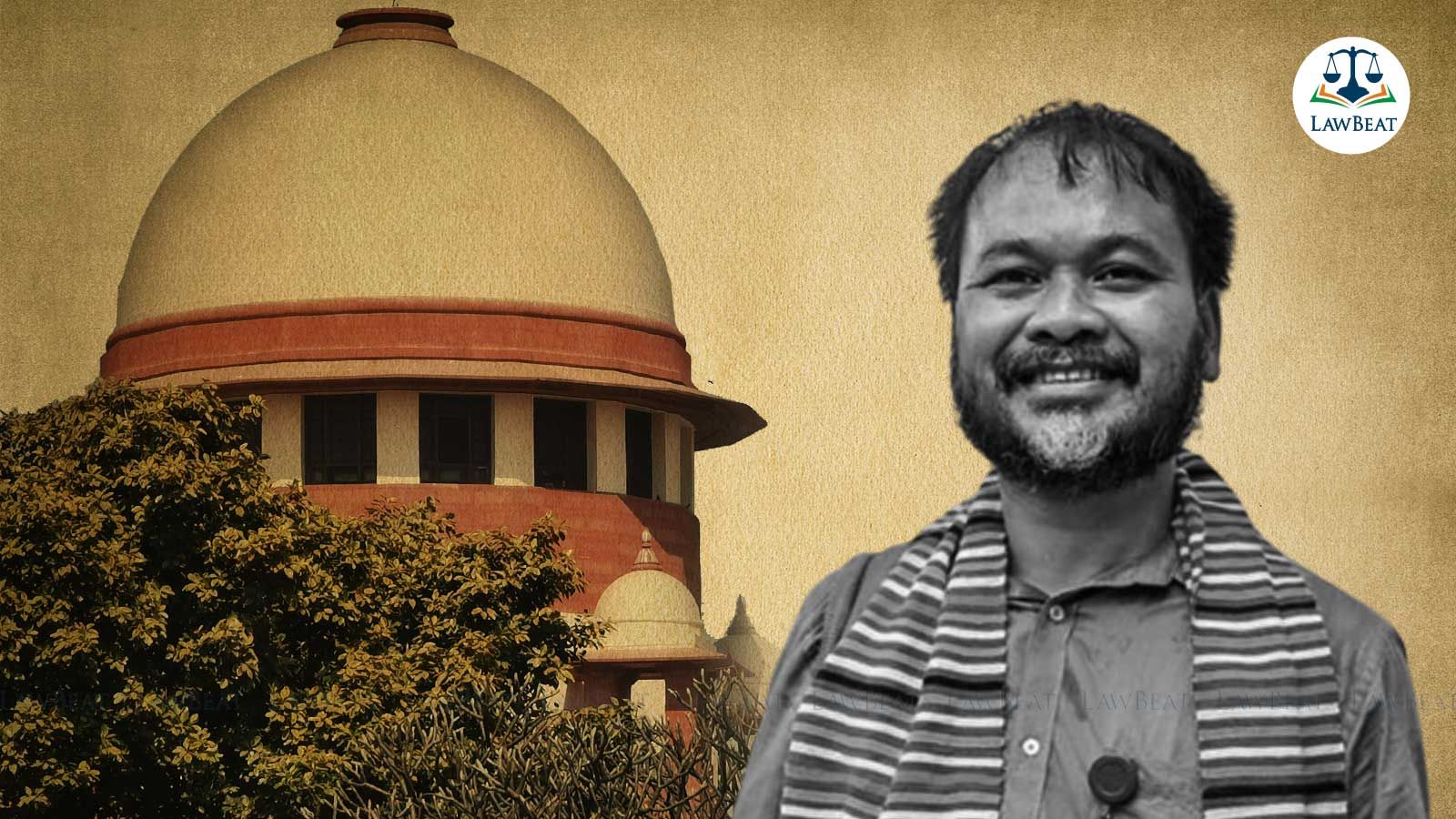Supreme Court issues notice in Akhil Gogoi's plea challenging invocation of sedition charges against him

Gogoi's plea also challenges related offences under the IPC that employ similar reasoning and logic as the offence of sedition namely, Sections 120A, 153A and 153 B, as being ultra vires Articles 14, 19(1)(a) and 21 of the Constitution of India.
The Supreme Court today issued notice on the plea moved by Member of Assam Legislative Assembly from Sibsagar, Akhil Gogoi, seeking a stay of the proceedings against him under Sec. 124A, essentially for having engaged in protests against the enactment of the Citizenship Amendment Act, 2019.
Notably, Gogoi has also challenged the constitutional validity of Section 124A (Sedition Law) of the Indian Penal Code, 1860 along with related offences which employ similar logic of sedition (inasmuch as they entail the very same ingredients as sedition) as being ultra vires of Article 19(1)(a) of the Constitution read with Articles 14 and 21.
When the matter was taken up today, CJI DY Chandrachud asked Senior Advocate Hufeza Ahmadi, appearing for Gogoi, why the petitioner did not intervene in the main matter.
Ahmadi then told the bench that, Gogoi was charged of the offence and that there was a gap in the court's previous order keeping the provision on abeyance.
Accordingly, the bench also comprising Justices JB Pardiwala and Manoj Misra issued notice on the interim prayer made by Gogoi and tagged it with the main plea.
The MLA has further challenged the vires of criminalizing ‘political and speech acts’, however critical of the Government and its policies.
It is Gogoi’s case that as Supreme Court has already issued directions with respect to Section 124A in S.G. Vombatkere v. Union of India, the said directions would also be applicable to cases where the nature of the offences is essentially contained within the logic of the offence of sedition i.e., involving the same ingredients of criminalising political criticism of the State.
"...the Petitioner is all the more prejudiced because his dissenting speech, which is only critical of the CAB/CAA, is always seen as a symptom of some deep-rooted conspiracy. Similarly, misdemeanours, or even IPC offences are elevated to the level of “terrorist activities” as defined under the UAPA. Moreover, calls for mere bandhs are equated with economic blockades that C intend to systematically destroy the economy, since it has been suggested, and it plays on the back of the mind while judging the speeches, that there may have been some larger conspiracy...", the plea submits.
Gogoi has added that he is accused of “speech offences” which are in the nature of political acts of critique, covered squarely within Section 124-A, IPC.
Court has been further told that Gogoi is not accused of having indulged in any violence, rather, the allegation is as broad and as ambiguous as can be, as the charge sheet alleges that he organized protests with intent to threaten the unity, integrity, security, economic security and sovereignty of India.
Case Title: Akhil Gogoi vs. Union of India
